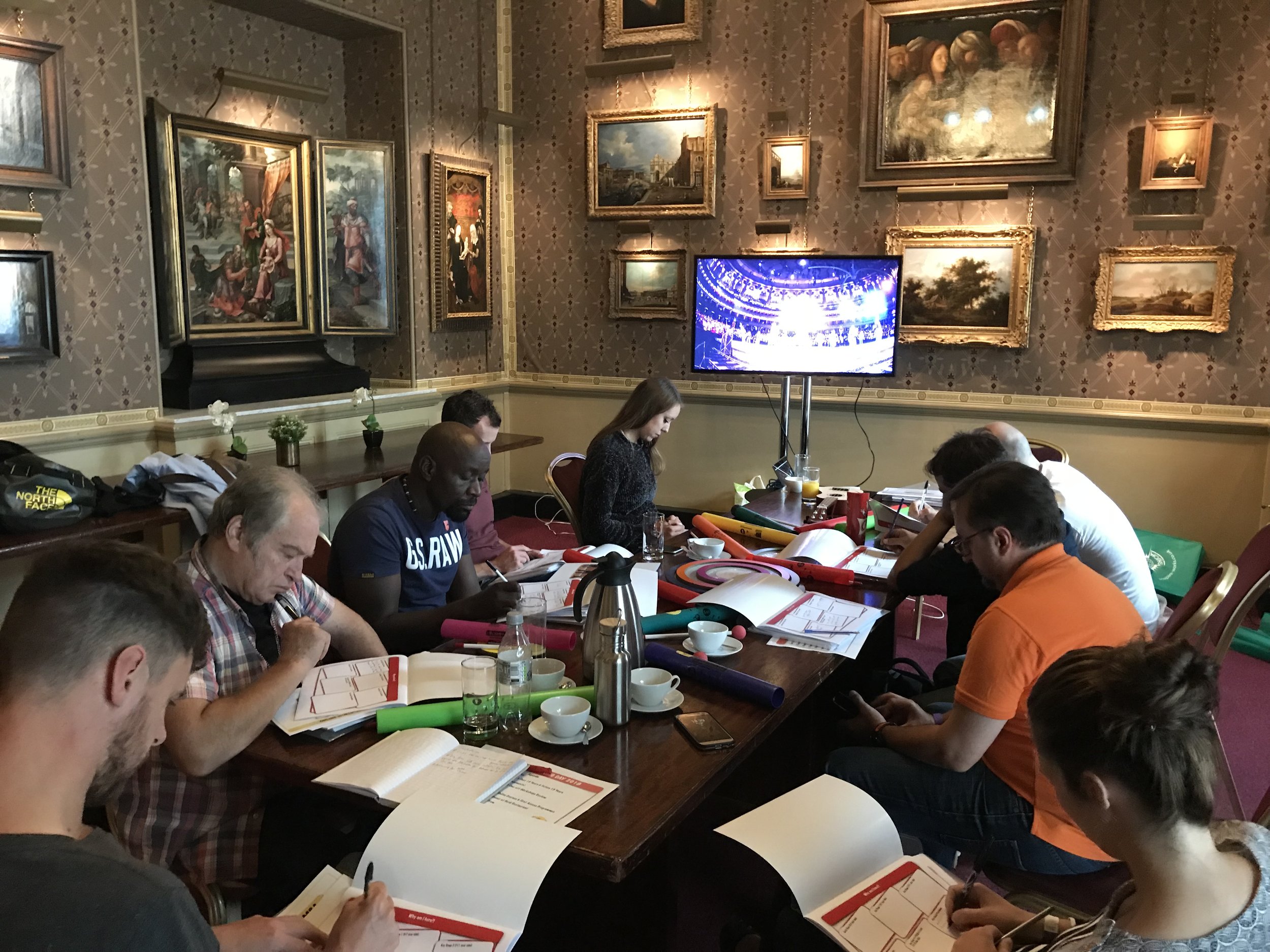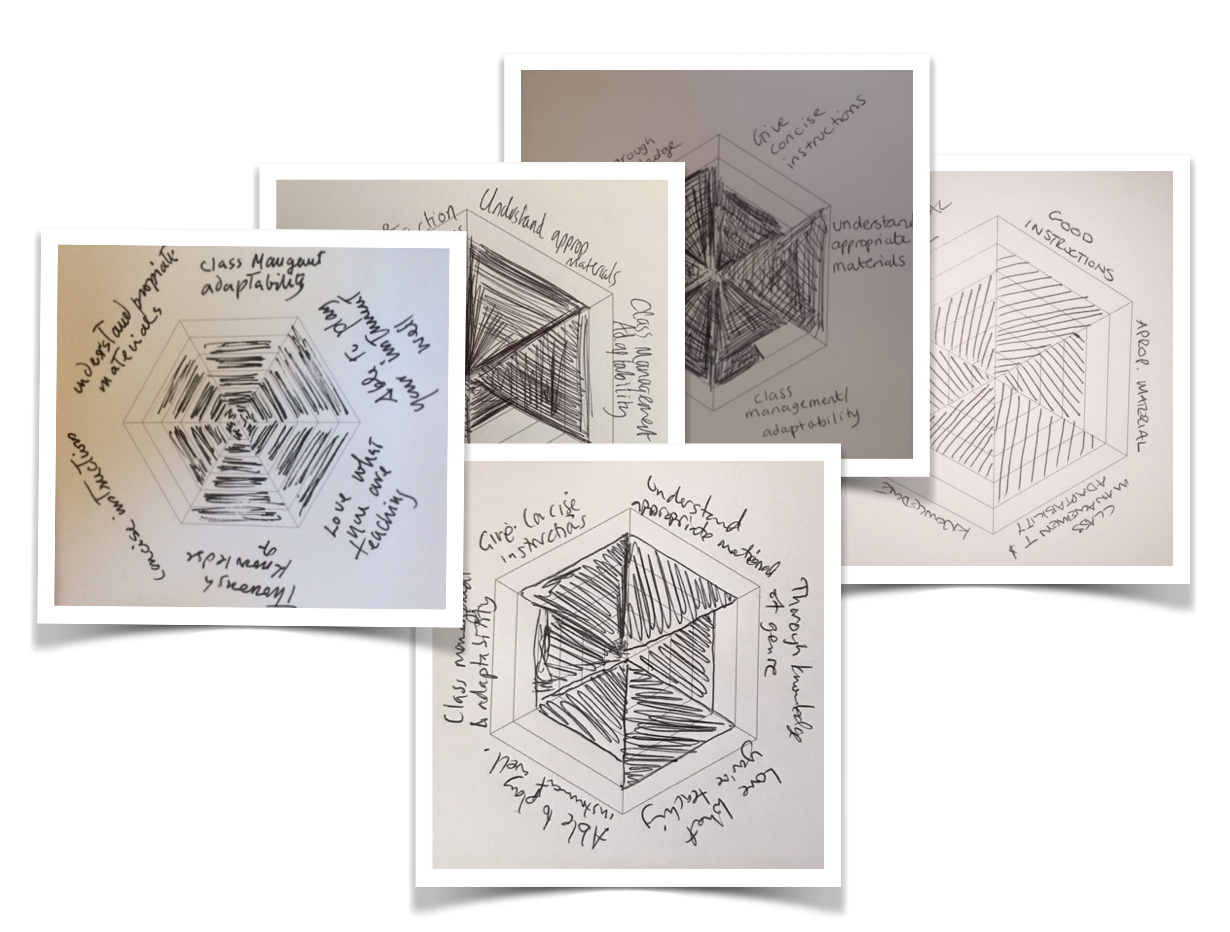This September marks the 15th anniversary of Inspire-works and it’s got us being very reflective about what we do, why we do it and what should we be doing! At our Facilitators Training Day on Friday we asked ourselves the question, "What skills does a workshop facilitator need this academic year?"
Over the past 15 years we’ve seen big changes with music education in the U.K. and we’ve had to adapt how and what we should be providing to schools to suit the need. For example, 15 years ago very few schools or music services had class sets of African djembe drums or Brazilian samba instruments, most primary school music coordinators and secondary school music teachers felt ill-equipped to teach a unit of work on African drumming and there was only a handful of workshop facilitators around the U.K. offering African drumming workshops. Also the content and expectation of what children should be able to achieve was very varied, Wider Opportunities/First Access Programmes and Music Hubs didn’t exist, there was very little whole-class ensemble teaching in both primary and secondary schools and there was very little joined up thinking going on across each locality.
In contrast, today, the majority of schools either have their own class set of world-music instruments (e.g. djembes, dhols, samba instruments or steel pans) or regularly participate in a unit of work using these instruments provided by a local workshop provider or music hub. Any visiting workshop experience is usually carefully planned and reasoned in a school’s Music Policy and Self Evaluation Tool for Music in Schools as advised by their local Music Hub. African drumming is now a core part of a Music Hub’s First Access/whole-class ensemble programmes at Key Stage 2 and many primary music coordinators and secondary music teachers are now comfortable delivering a whole-class drumming programme. There are many resources available to teach whole-class world-music programmes, there are several world-music CPD opportunities and a child’s progress within a whole-class music programme is carefully monitored through assessment and programmes such as Arts Award. Lastly, the profile of world-music has been raised right across the education spectrum with many multi-cultural songs used with EYFS and most GCSE & A Level exam boards now having a world-music area of study.
Our facilitators reflecting their skills at our Facilitator Training Day at the Royal Albert Hall
So where does a visiting workshop facilitator or company fit in with a child’s music education this academic year? At our Facilitator’s Training Day at the Royal Albert Hall last Friday we spent some time considering why schools or music hubs book us to deliver workshops and what skills a workshop facilitator needs in music education today.
When thinking about leading a workshop in a school, the first question we asked ourselves was “Why am I here?!” In other words, “Why do schools book us to lead workshops?”. We broke this down into the different Key Stages/age groups as we know the reasons a school or setting books us varies depending on the demands of the curriculum.
Main reasons our facilitators decided why a school might book us to lead workshops
Then, having discussed why schools book us and the skills and resources a school would already have in-house, we spent time considering what skills a workshop facilitator needs when leading one-off workshops and narrowed it down to the following core skills:
Thorough knowledge of the musical genre
Good class management skills & adaptability to school environment/culture
Able to give concise and clear instructions
Understand what are appropriate materials to teach to each age group
Able to play your instrument to a high and inspiring standard
Love what you’re teaching.
Lastly, using a radar chart (based on Alison Daubney’s excellent constructs of an excellent music teacher) each of our facilitators self assessed how they measure up to skills needed which will help us as an organisation not only know how our workforce feel about their own skills, but also helps us work out what future training we may need to offer our facilitators.
Facilitator radar charts depicting how they measure their skills
As we look forward to supporting music education over the next 15 years, we know we will have to constantly adapt what we deliver to suit a changing landscape and a school's in-house skills/resources. Our hope is that as we continue to constantly reflect the need for our work and what we can offer, we will maintain a meaningful core place within music education, not just in the U.K. but also wider afield.
Related resources from Inspire-works:
Links:
- Music Mark information on Whole Class Ensemble Teaching at Key Stage 2
- Self Evaluation Tool for Music in Schools (Tri-borough Music Hub templates & guidance)
- Constructs of an Excellent Music Teacher, Alison Daubney (page 13)




